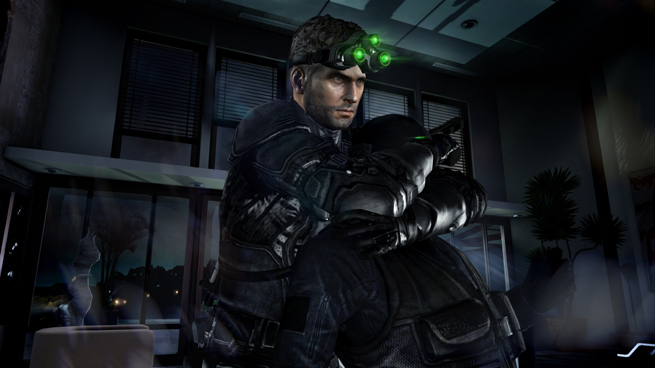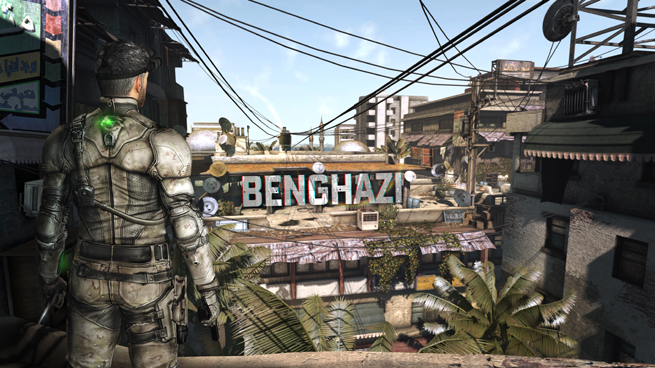Sam Fisher’s in a bad mood. He’s in a blown CIA safehouse in a bad part of Benghazi with a dead informant, and the package his Fourth Echelon team swore would be here isn’t anywhere in sight. Sam didn’t bother to tell the Libyan government he was coming, either, but truckloads of armed militants are showing up outside. His people scramble for hard answers. Sam needs an exit, and he wants what he came for very, very badly.
Getting it is the fun part. Past Splinter Cell games let you choose between quiet infiltrator and ruthless operator. Splinter Cell: Blacklist (releasing August 20 for Xbox 360, PlayStation 3, and PC) doesn’t split hairs anymore. It just supports your choices — and rewards them.
“Once people buy it and play it, it’s their game,” says franchise creative director Maxime Beland. “They should play it the way they want to.
“We identified three types of players. There’s the classic Splinter Cell ghost player, the guy who doesn’t want to be detected, he wants to be nonlethal. On the other end of the spectrum, there’s the assault player. He wants to kick doors down, use grenades, shoot two-handed weapons. Then you have the ‘panther’ player, the guy in the middle who strikes from the shadows.”
Splinter Cell: Blacklist watches how you handle yourself and doles out rewards in the Ghost, Assault, and Panther categories accordingly.
That includes unlocking gear to further your most pronounced playstyle. Sticky-cams make a return to the series, or you can scout an area with a tri-rotor drone. You can even build out your own personal Sam Fisher by upgrading his tactical suit along those Panther/Assault/Ghost lines. Extra pockets for gadgets. More ammo pouches. Noise-muffling insulation.
Or you can just pimp out his iconic multivision goggles, changing that tri-lens green to red, blue, orange, and so on. Those are just a few options for the fashion-conscious ninja.
I went for Panther — Sam’s long-established codename. That means I spent a lot of time hanging off a building, whistling to attract stray militants before yanking them off the roof, one after another after another. The A.I. just isn’t too bright about such things. I left a fairly huge pile of dead bodies on the ground by the time I moved on. Each one added a chunk of change to Fourth Echelon’s operating budget — with a multiplier for my roof-hanging streak — and I could’ve kept it up all day, no sweat. But I still had a vital piece of intel to recover.
And if that sounds a little too easy, I’d have to agree.


